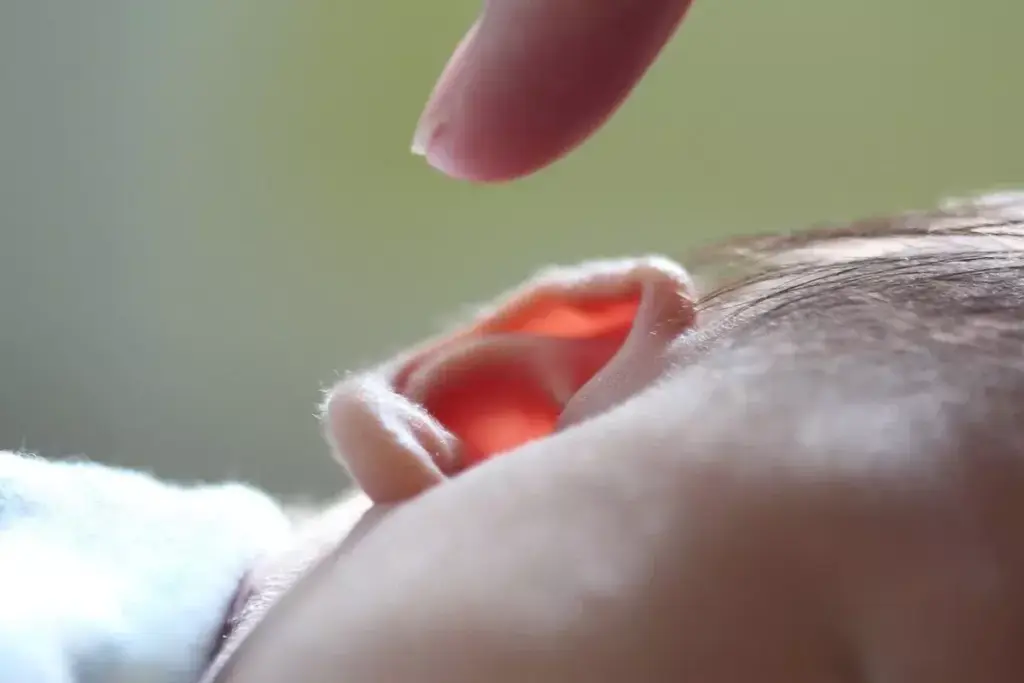
Coughing can raise pressure inside your belly. This can strain or tear weak muscles in your belly or chest. This strain might cause tissue or organs to bulge through the muscle wall, leading to a hernia.Learn how hernia from coughing happens, symptoms to watch for, and when to seek treatment.
The expert says a hiatal hernia happens when the stomach bulges into the chest. This is often because the muscle is weak. Knowing how coughing can cause hernias is key to preventing them and getting the right treatment.
Key Takeaways
- Coughing can increase intra-abdominal pressure, potentially leading to a hernia.
- Weakened abdominal or chest wall muscles are more susceptible to hernias from coughing.
- A hiatal hernia can occur when the stomach bulges through the diaphragm.
- Understanding the risks can help in taking preventive measures.
- Seeking medical advice is critical for the right treatment.
Understanding Hernias: The Basics

A hernia happens when an organ or tissue bulges through a weak spot in the muscle or tissue. This can happen in different parts of the body. It often causes discomfort and can lead to serious problems if not treated.
What Is a Hernia?
A hernia is when something bulges because of a weak spot in the muscle or tissue. This weakness can come from genetics, injury, or strain from activities like heavy lifting or coughing.
Studies show that coughing a lot can cause hernias. This is because it puts a lot of pressure inside the belly, straining the walls.
Common Types of Hernias
There are many types of hernias, each with its own causes and symptoms:
- Inguinal Hernias: These happen when tissue bulges through a weak spot in the abdominal muscles in the groin area.
- Umbilical Hernias: These occur near the belly button, often because of a weak spot in the abdominal wall.
- Incisional Hernias: These develop through a scar or incision in the abdominal wall, from previous surgery.
- Epigastric Hernias: As the expert explains, these happen in the front of the abdomen, between the breastbone and belly button. They often have a visible bulge and pain.
Risk Factors for Developing Hernias
Several things can increase the chance of getting a hernia, including:
- Genetic predisposition or family history of hernias
- Age, as hernias are more common in older adults
- Chronic coughing or sneezing, which increases abdominal pressure
- Obesity or being overweight, adding strain to the abdominal wall
- Previous surgeries or injuries that weaken abdominal muscles
Knowing about these risk factors and what hernias are is key for prevention and early detection.
The Mechanism Behind Hernia From Coughing

Coughing can lead to a hernia by putting pressure on internal organs. This pressure can be strong enough to cause a hernia. It’s a natural reflex to clear the airways, but forceful coughing can be harmful.
How Intra-abdominal Pressure Works
Intra-abdominal pressure is the pressure inside the abdominal cavity. It increases with actions like coughing, straining, or lifting heavy objects. When you cough hard, this pressure can strain the abdominal walls.
Intra-abdominal pressure is key in hernia development. As pressure builds, it can push the abdomen’s contents through weak spots in the wall.
The Impact of Forceful Coughing on Abdominal Walls
Forceful coughing can weaken the abdominal walls. The repeated strain can make the muscles tired and weak. This makes them more likely to herniate.
| Effect of Coughing | Impact on Abdominal Walls |
| Increased intra-abdominal pressure | Strain on abdominal muscles |
| Repeated forceful coughing | Muscle fatigue and weakening |
| Potential for herniation | Contents of abdomen bulge through weakened areas |
Weakened Muscle Areas and Vulnerability
Some parts of the abdominal wall are naturally weaker. These areas are more likely to herniate when under pressure from coughing.
Weakened muscle areas can be due to genetics, surgeries, or chronic conditions. When these areas face the strain of coughing, the risk of a hernia goes up.
Can You Really Get a Hernia From Coughing?
Coughing is often seen as a symptom, not a cause. But, research shows it can lead to hernias in some people. The link between coughing and hernias is complex. It depends on the cough’s force, the person’s health, and any weak spots in the belly.
Scientific Evidence and Medical Research
Studies in gastroenterology and surgery have shed light on coughing’s effects. Intense, long coughs can raise belly pressure. This can strain the belly walls, making hernias more likely if there are weak spots.
Medical research shows coughing alone might not cause hernias. But, it can be a factor for those at risk. This is true for people with long-term respiratory issues that cause strong coughs.
Documented Cases and Statistics
There are cases where coughing led to hernias, mainly in adults with respiratory illnesses. Clinical studies show more hernias in people with chronic cough. This suggests a link between coughing and hernias.
A study in a surgical journal found many with inguinal hernias had severe coughs before noticing their hernia. This highlights the connection between coughing and hernias.
Myths vs. Facts About Cough-Induced Hernias
Despite evidence, myths about coughing and hernias persist. One myth is that anyone can get a hernia from coughing. But, coughing is more likely to reveal or worsen an existing weakness than cause a new hernia.
Knowing the truth can ease worries and encourage preventive steps. If you have a persistent or severe cough, see a doctor. Managing the cough’s cause can lower hernia risk.
Types of Hernias Commonly Caused by Coughing
Coughing can lead to different types of hernias in various parts of the body. Increased pressure from coughing can cause weakened areas to bulge, leading to a hernia. Knowing the types of hernias caused by coughing is key for diagnosis and treatment.
The link between coughing and hernia development is complex. It involves the cough’s force, pre-existing weaknesses, and overall health. Let’s look at the common hernias caused by coughing.
Inguinal Hernias
Inguinal hernias happen when tissue bulges through a weak spot in the abdominal muscles in the groin. Coughing can make this worse by increasing pressure inside the abdomen.
Key characteristics of inguinal hernias include:
- More common in men
- Painful, often when coughing or straining
- May need surgery to fix
Umbilical Hernias
Umbilical hernias are near the belly button and more common in infants. But they can also happen in adults. Coughing can increase the risk or make an existing one worse.
Notable aspects of umbilical hernias include:
- Looks like a bulge near the navel
- More noticeable when coughing or straining
- May need surgery in adults, but can close on their own in infants
Incisional Hernias
Incisional hernias happen through a scar or incision in the abdominal wall, often from previous surgery. Coughing can strain the weakened area, increasing the risk of an incisional hernia.
Important facts about incisional hernias:
- Appears at the site of a previous surgical incision
- Can be influenced by wound infection or poor healing
- May need surgery to prevent complications
Intercostal (Chest Wall) Hernias
Intercostal hernias occur when lung tissue or other contents bulge through a defect in the chest wall. While rare, coughing can increase pressure in the thoracic cavity, contributing to their development.
Key points about intercostal hernias:
- Rare compared to other hernias
- Can be linked to trauma or congenital conditions
- May require surgery for correction
The table below summarizes the key characteristics of the hernia types discussed:
| Hernia Type | Location | Common Causes/Risk Factors | Symptoms |
| Inguinal Hernia | Groin area | Weakness in abdominal wall, increased intra-abdominal pressure | Bulge in groin, pain when coughing or straining |
| Umbilical Hernia | Near belly button | Congenital or acquired weakness, coughing, straining | Bulge near navel, discomfort |
| Incisional Hernia | Site of previous surgical incision | Previous abdominal surgery, wound complications | Bulge at incision site, pain |
| Intercostal (Chest Wall) Hernia | Chest wall | Trauma, congenital defects, increased thoracic pressure | Protrusion through chest wall, potentially painful |
Risk Factors That Make You More Susceptible
Coughing can cause hernias in anyone. But some conditions make you more at risk. Knowing these factors helps spot who’s more likely to get a hernia from coughing.
Pre-existing Muscle Weakness
Pre-existing muscle weakness is a big risk factor. If your abdominal muscles are weak, coughing can push them too hard. This weakness can come from age, not exercising, or genetics.
Obesity and Weight Factors
Obesity also raises the risk. Being overweight strains your abdominal muscles, making them more likely to herniate when you cough. Eating right and exercising can help keep your weight in check.
Previous Surgeries
People who’ve had previous surgeries, like abdominal ones, are at higher risk. Surgical scars can be weak spots where hernias can form, making them more likely if you cough hard.
Chronic Respiratory Conditions
Chronic respiratory conditions like COPD or asthma cause severe coughing. This constant coughing raises the pressure inside your belly, increasing the chance of a hernia.
Having one or more of these risk factors makes you more likely to get a hernia from coughing. It’s important for those with these risks to know about them and take steps to prevent a hernia.
- Maintaining a healthy weight
- Exercising to strengthen abdominal muscles
- Managing chronic respiratory conditions
- Seeking medical attention for persistent coughing
By understanding and tackling these risk factors, you can lower your chance of getting a hernia from coughing.
Recognizing Symptoms of a Hernia From Coughing
Knowing the signs of a hernia caused by coughing is key to better treatment. A hernia from coughing shows through different symptoms that need quick action.
Common Signs and Symptoms
People with a hernia from coughing often feel pain or discomfort in the abdomen or chest area. This pain can be mild or severe and gets worse with coughing, lifting, or bending.
They may also notice visible bulges or lumps in the affected area. These bulges are more noticeable when standing or straining.
Hernia Pain When Coughing
Hernia pain gets worse with coughing because coughing increases pressure inside the abdomen. This puts more strain on the weak area. Many say that coughing hurts the hernia and makes the pain worse.
Visual Indicators of a Hernia
A visible bulge or swelling in the affected area is a common sign of a hernia. The size and how noticeable the bulge is can change based on the type and severity of the hernia.
Differences Between Hernia Types
Different hernias show different symptoms. For example, inguinal hernias show up in the groin, while umbilical hernias are near the navel. Knowing these differences helps in getting the right diagnosis and treatment.
By recognizing these symptoms and understanding the differences between hernia types, people can get medical help quickly. This can help avoid serious problems.
Gender-Specific Considerations: Hernia From Coughing in Women
Coughing can lead to hernias, and women are at higher risk. This is due to pregnancy and body differences. Knowing these factors is key for prevention and treatment.
Anatomical Differences and Risk Factors
Women’s bodies are different from men’s, affecting hernia risk. The shape of the abdominal wall and certain health issues can raise this risk. It’s vital to understand these differences for proper care.
Intra-abdominal pressure is a big factor, made worse by coughing. Women with weaker muscles or who have had surgeries are more at risk. This is because the pressure on the abdominal wall increases.
Pregnancy and Postpartum Considerations
Pregnancy increases hernia risk in women. The growing uterus puts extra pressure on the abdominal wall. Pregnant or postpartum women should be aware of these risks.
After giving birth, women may have weakened muscles. This is due to diastasis recti, where the muscles separate. Such weakness makes them more likely to get hernias, if they cough a lot.
Treatment Approaches for Women
There are several ways to treat hernias caused by coughing in women. The right treatment depends on the hernia’s size, the patient’s health, and other factors like pregnancy or past surgeries.
- Conservative Management: For small hernias or mild symptoms, watching and making lifestyle changes might be advised.
- Surgical Intervention: Larger hernias or those causing a lot of pain might need surgery. The decision to operate should be made with a healthcare provider.
Women should talk to their healthcare provider about their situation. This includes discussing the best treatment options based on their risk factors and health.
Diagnosing a Cough-Induced Hernia
To diagnose a cough-induced hernia, doctors use a detailed approach. This includes a physical exam and sometimes imaging tests. This method is key to correctly identifying the hernia.
Physical Examination Process
The first step in diagnosing a hernia is a physical exam. A healthcare provider checks the abdomen and groin for signs of a hernia. They might ask the patient to cough or strain to see the hernia better.
Key components of the physical examination include:
- Visual inspection of the affected area
- Palpation to detect any abnormalities
- Cough test to observe if the hernia becomes more apparent
Imaging Tests and Procedures
If the physical exam doesn’t give clear results, imaging tests might be needed. These tests show detailed images of the inside of the body. They help confirm the presence and size of the hernia.
Common imaging tests used include:
- Ultrasound
- Computed Tomography (CT) scan
- Magnetic Resonance Imaging (MRI)
Differential Diagnosis
Differential diagnosis is important in finding hernias. It’s about ruling out other conditions that might look like a hernia. Doctors look at many possible causes for symptoms, like other hernias, muscle strains, or abdominal problems.
A good differential diagnosis helps ensure the right diagnosis and treatment. It might involve more tests to figure out the cause of symptoms.
Will a Hernia From Coughing Go Away on Its Own?
It’s important to know if a hernia from coughing will heal by itself. Hernias from coughing can be painful and may lead to serious problems if not treated.
Natural Course of Untreated Hernias
Hernias usually don’t get better on their own. They might stay the same or even get bigger. Coughing can make the problem worse by raising pressure inside the belly.
Some people might not feel much pain, but others can have a lot of discomfort. This pain can keep coming back, mainly if the coughing doesn’t stop.
Myths vs. Reality About Hernia Recovery
Many think hernias can heal by themselves. But, surgery is the only sure way to fix a hernia. Waiting for a hernia to heal on its own is not usually a good idea.
Studies show that hernias don’t usually fix themselves. A study found that untreated hernias can cause serious problems, like getting stuck or losing blood supply, which need quick medical help.
Potential Complications of Untreated Hernias
Not treating a hernia can cause serious issues. These include:
- Incarceration: The hernia gets stuck and can’t go back inside.
- Strangulation: The blood supply to the hernia gets cut off, causing tissue death.
- Increased pain: As the hernia gets bigger or gets stuck, the pain gets worse.
If symptoms don’t get better or get worse, you should see a doctor. Early treatment can stop these problems and help people with hernias from coughing.
Treatment Options for Cough-Induced Hernias
Treatment for hernias caused by coughing can vary. It depends on how severe the condition is. The choice of treatment also depends on the type of hernia, the patient’s health, and any complications.
Conservative Management Approaches
For mild symptoms or those not suited for surgery, conservative management is suggested. This includes:
- Lifestyle changes like losing weight and avoiding heavy lifting
- Using medication for pain
- Watching for any changes in symptoms or hernia size
The expert says conservative management works for some patients. This is true for those with small, asymptomatic hernias.
Surgical Interventions
Surgery is needed for large, symptomatic, or risky hernias. Surgical options include:
- Open hernia repair
- Laparoscopic hernia repair
- Robotic hernia repair
The choice of surgery depends on the hernia type, patient health, and surgeon skill.
| Surgical Method | Description | Recovery Time |
| Open Hernia Repair | A traditional method involving a single incision to access the hernia. | Typically 4-6 weeks |
| Laparoscopic Hernia Repair | A minimally invasive technique using several small incisions and a camera. | Usually 1-3 weeks |
| Robotic Hernia Repair | A advanced laparoscopic method with enhanced precision and flexibility. | Generally 1-3 weeks |
Recovery Timeline After Treatment
The recovery time varies by treatment. After surgery, it takes several weeks to get back to normal. With conservative management, ongoing monitoring and lifestyle changes are needed.
Managing Pain During Recovery
Managing pain well during recovery is key. This includes:
- Medications from the healthcare provider
- Avoiding strenuous activities
- Using supportive devices if recommended
Understanding treatment options helps patients make informed decisions. It’s important to talk to a healthcare professional to find the best treatment for a cough-induced hernia.
Living With a Hernia: Pain Management and Coping Strategies
Living with a hernia means you need a good plan for pain management. People with hernias face daily challenges that can affect their life quality. It’s key to find effective ways to manage pain and stay well.
Managing Hernia Pain When Coughing
Coughing can make hernia pain worse. It’s important to find ways to handle this. Controlled coughing, where you support your abdominal muscles, can help lessen the strain on your hernia.
Also, using a pillow or cushion to support your abdomen while coughing can help. Sometimes, doctors might suggest cough suppressants or other medicines to ease cough-induced pain.
Supportive Devices and Techniques
Supportive devices are key in managing hernia discomfort. Abdominal binders or hernia support belts can give extra support to your abdominal wall. This can help reduce strain on your hernia.
These devices are very helpful during activities that increase pressure inside your abdomen, like lifting or bending. It’s important to talk to a healthcare provider to find the right supportive device for you.
Lifestyle Adaptations
Changing your lifestyle is important if you have a hernia. Avoiding heavy lifting, bending, or hard activities can help prevent more strain on your hernia.
Keeping a healthy weight, eating well, and staying hydrated can also help you feel more comfortable. Gentle exercises like walking or yoga can improve your abdominal muscle strength and flexibility.
When to Seek Additional Help for Pain
It’s important to know when you need more medical help for hernia pain. If your pain is severe, doesn’t go away, or gets worse, see a doctor.
Other signs you might need more medical help include swelling, redness, or tenderness around your hernia, fever, or trouble passing stools or gas. Getting medical help quickly can prevent serious problems and help manage your pain.
Conclusion: Taking Control of Your Hernia Health
Knowing how coughing affects hernias is key to keeping your belly healthy. Forceful coughing can raise pressure inside your belly. This might lead to hernias, which are more likely in some people.
Start by being aware of your risk. Look out for signs like weak muscles, being overweight, or long-term breathing problems. Taking steps to prevent these can help a lot. Managing your cough and fixing health issues can lower your chance of getting a hernia.
Watch out for hernia signs like pain when you cough or see bulges. If you notice these, see a doctor right away. This can lead to early treatment and help you stay healthy.
Being informed and taking action can help you manage your hernia health. This way, you can avoid serious problems linked to coughing and hernias.
FAQ
Can I get a hernia from coughing?
Yes, coughing hard can make you more likely to get a hernia. This is true if you already have weak muscles or other risk factors.
Can you give yourself a hernia by coughing?
Coughing alone might not directly cause a hernia. But, it can make weak spots in your abdominal wall worse, leading to a hernia.
Will a hernia from coughing go away?
A hernia from coughing usually won’t fix itself. You might need to see a doctor to avoid serious problems.
Does coughing cause hernia pain?
Yes, coughing can hurt if you have a hernia. This is because coughing makes your belly press harder, straining the weak spot.
Can coughing cause a hernia?
Coughing can help cause a hernia by making your belly press harder. But, it’s usually a mix of factors, like weak muscles, that leads to a hernia.
What are the symptoms of a hernia caused by coughing?
Signs include pain or discomfort, a bulge, and pain when coughing, straining, or lifting heavy things.
Can a hernia cause coughing?
A hernia itself doesn’t usually cause coughing. But, some hernias or related issues might make you cough.
How is a hernia from coughing diagnosed?
Doctors usually check you physically first. They might also use tests like an ultrasound or CT scan to confirm the hernia.
What are the treatment options for a hernia caused by coughing?
Treatment can be simple, like watching it and making lifestyle changes. Or, it might need surgery, depending on the hernia’s severity and type.
Can you manage hernia pain when coughing?
Yes, you can manage pain by using pain meds, supportive devices, and ways to reduce coughing.
Are there any lifestyle adaptations that can help with living with a hernia?
Yes, avoiding heavy lifting, managing coughing, and staying healthy can help ease symptoms and prevent problems.
When should I seek additional help for hernia pain?
See a doctor if the pain is severe, gets worse, or if you notice signs of complications like incarceration or strangulation.
References
Huttinger, R. (2023). Spigelian hernia. In StatPearls. National Library of Medicine. Retrieved from https://www.ncbi.nlm.nih.gov/books/NBK538290/










